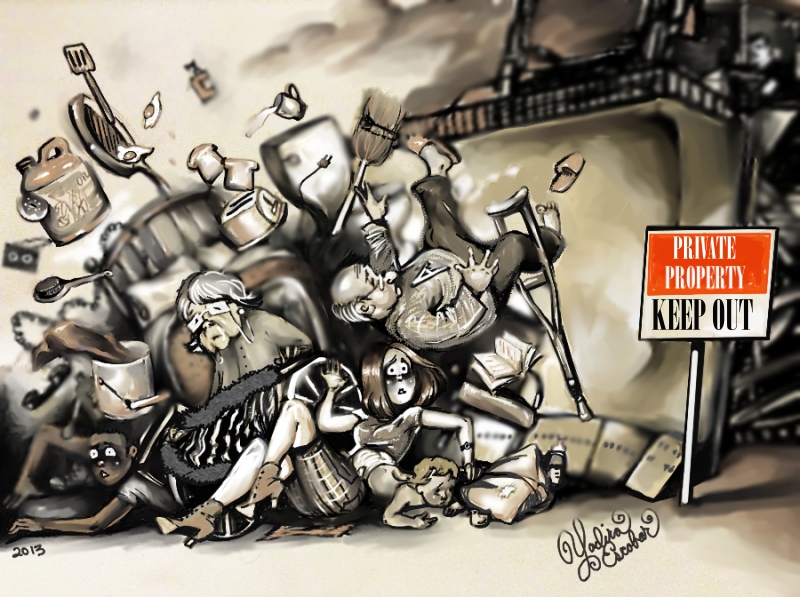
Evicting the have-nots for the benefit of the have-lots
MIAMI – In Miami-Dade County, it is usual for a corrupt mayor to be in the news, as the press shows him being arrested, but in general the media don’t show how the poor people’s trailers are demolished after the tenants are evicted.
One of the typical images of South Florida’s urban landscape are the trailer-park areas. The trailers range from pretty and modern to humble and ramshackle. They usually sit on private land, where tenants have to pay a monthly fee that is more economical than renting a house or apartment. To low-income people, trailers are an attractive way to save money.
The bad thing about it is that if the landowner someday decides to remove everyone, to profit more from his land, many people are adversely affected, as they receive no compensation for the money they’ve spent improving their homes.
Eviction is practiced in Miami. It is usually used against tenants who cannot meet their financial commitments and are put on the street by the bank. But the saddest sights are the mass evictions created by land speculation.
In such actions, many people lose all kinds of property, because it is difficult for humble people to move their private property. From a lemon tree to an expensive piece of furniture, we’re talking about very small private property, not protected by laws that were passed for the benefit of privileged classes and their large properties.
Eviction has existed since the beginning of capitalism, and Western culture has grown used so much to this type of abuse that many accept it as something normal.
Eviction notices have been served on residents of Miami’s Flagami Paradise trailer park south of the Miami River, precisely at a time when the Miami River Commission is coordinating with the private sector a major project to line the river’s shores with docks, green areas and buildings that some developers are already selling as “an extension of downtown” to the north.
The project envisions two belts of green areas and continuous traffic of water taxis.
Although the promotion made to investors places “the new Brickell” a little to the southwest, from Biscayne Bay to the Dolphin Expressway overpass (exactly 1.4 miles southwest of those dwellings), the speculative greed is already lapping at the banks of the famous river and could be the cause of many evictions. So far, the only talk is about the area’s “deplorable living conditions,” unacceptable by the county’s standards.
Naturally, the excuse to expel the residents and demolish their dwellings will involve the condition of the roofs, sewer or power lines, but we already know to which side the capitalist legal system leans: to the side of money.
Although the Miami River Commission has spent $15 million in preparing that “beautiful bourgeois project” on the river banks, I don’t expect it to spend a penny to help the evictees.
A trailer can cost from $6,000 to $30,000, but it is almost impossible to move most of them, which in time become well-established little homes. Almost always they end up demolished. It saddens me that a country that has the greatest economy in the planet evicts so many people and that speculation has the last word.
All the financial capital the U.S. has should not overshadow the human capital we need to be happy. But, you know, as long as the poor continue to dream that they’ll win the Lottery and don’t organize to confront this institutionalized evil we shall continue to see unfair evictions.

